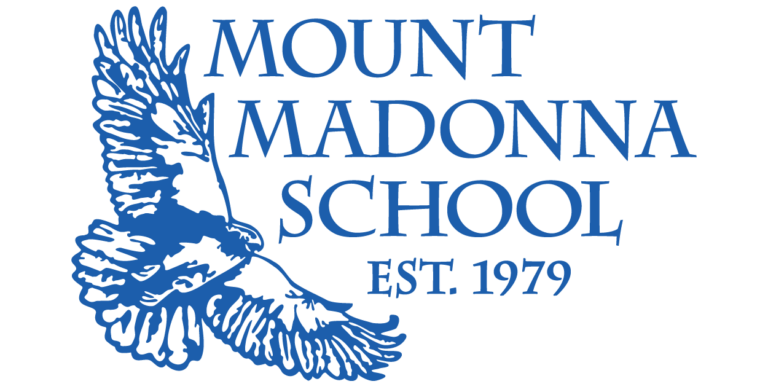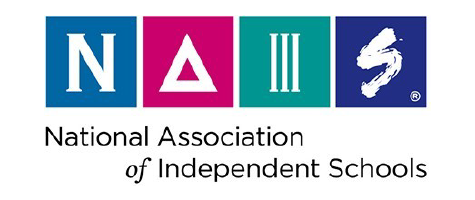 “It’s the little things citizens do. That’s what will make the difference. My little thing is planting trees.” — Wangari Maathai, Kenyan educator, conservationist, and Nobel Peace Prize recipient
“It’s the little things citizens do. That’s what will make the difference. My little thing is planting trees.” — Wangari Maathai, Kenyan educator, conservationist, and Nobel Peace Prize recipientA couple years ago, third grader Isabel Gonzalez’s mother read her a book about Wangari Maathai’s efforts on behalf of her African homeland and the story stuck with the then-first grader. Recently, when third grade teacher Hamsa Heinrich explained the Moral Heroes Project students would be doing, Gonzalez said she quickly decided to select Maathai as her hero.
‘I chose her because she cared about Kenya and led people to plant more than 40 million trees,’ shared Gonzalez.
 On a recent afternoon the third grade classroom was transformed into a ‘living museum’ — where each student sat ready to present about his or her chosen hero, including sharing written reports and timelines of notable events in each hero’s life. Some students also chose to include posters, dioramas, support props or even costumed themselves as a ‘living’ representation of their hero! Each student made a colorful ‘hero’ bottle doll.
On a recent afternoon the third grade classroom was transformed into a ‘living museum’ — where each student sat ready to present about his or her chosen hero, including sharing written reports and timelines of notable events in each hero’s life. Some students also chose to include posters, dioramas, support props or even costumed themselves as a ‘living’ representation of their hero! Each student made a colorful ‘hero’ bottle doll.  ‘There was just something about wrapping Clara Barton in her Red Cross apron, for example, or fitting Paul Revere with a tricorn hat and Squanto’s bow and satchel — all just the right size for the dolls, that brought the characters more to life for each child,’ commented Heinrich. ‘Each student admired and felt close to his or her hero.’
‘There was just something about wrapping Clara Barton in her Red Cross apron, for example, or fitting Paul Revere with a tricorn hat and Squanto’s bow and satchel — all just the right size for the dolls, that brought the characters more to life for each child,’ commented Heinrich. ‘Each student admired and felt close to his or her hero.’For a couple of hours, an attentive audience of first, second, fourth and fifth grade students, teachers, parents and friends were invited into the classroom to listen and ask questions as each student shared their presentation.
 ‘When he was younger, Paul Revere took over the silversmith shop when his father died,’ noted third grader Wyatt Erbe. ‘In 1775 he made his midnight ride to warn the colonists that the British were coming. I chose him because he made a lot of sacrifices and completed dangerous missions for the revolutionary cause.’
‘When he was younger, Paul Revere took over the silversmith shop when his father died,’ noted third grader Wyatt Erbe. ‘In 1775 he made his midnight ride to warn the colonists that the British were coming. I chose him because he made a lot of sacrifices and completed dangerous missions for the revolutionary cause.’Heinrich explained that in third grade students are ready to expand their research and writing skills, and that one of the ways she supports this academic readiness is through the classic assignment of having students read and study biographies.
 ‘Third graders are stretching to read longer books and are learning strategies to be independent note takers,’ said Heinrich. ‘Besides these necessary skills, people are a fascinating subject, and the children are always pleasantly surprised at the richness of reading about real-life stories. The old adage that ‘facts are stranger than fiction’ is astoundingly true! There are also many terrific biographies published at just the right reading level for this age group. These are all good reasons why biographies have long been a favorite part of my curriculum.’
‘Third graders are stretching to read longer books and are learning strategies to be independent note takers,’ said Heinrich. ‘Besides these necessary skills, people are a fascinating subject, and the children are always pleasantly surprised at the richness of reading about real-life stories. The old adage that ‘facts are stranger than fiction’ is astoundingly true! There are also many terrific biographies published at just the right reading level for this age group. These are all good reasons why biographies have long been a favorite part of my curriculum.’ Students picked an array of historical and contemporary individuals as heroes, including civil rights activists, sports figures, conservationists, scientists, political figures and medical professionals.
 ‘I picked President George Washington because he fought for our independence, he was a good man and he loved to ride horses, which I do, too,’ explained third grader Erik Howley. ‘He had a lot of good stories, too, and I didn’t know any of these stories until I started researching him.’
‘I picked President George Washington because he fought for our independence, he was a good man and he loved to ride horses, which I do, too,’ explained third grader Erik Howley. ‘He had a lot of good stories, too, and I didn’t know any of these stories until I started researching him.’‘Rigoberta Menchu is my hero because she helped the Guatemalan people to get their land back, even though it was so dangerous,’ noted student Anya Gonzalez.
‘Frederick Douglass is my hero because he fought for equal rights for women, for blacks and Native Americans,’ said student Logan Shaw.
 ‘This is a photo of Marie Curie,’ explained student Kalissa Acayan, to an interested parent who sat beside her. ‘She was a scientist who studied radioactivity and discovered radium and polonium. She handled so much of it, it gave her cancer. She inspires me because at that time, if you were a girl it was extremely hard to become a scientist, and her work inspired a lot of women to become scientists. She was the first woman to win a Nobel Prize, and the first and only woman to win twice, in physics and chemistry.’
‘This is a photo of Marie Curie,’ explained student Kalissa Acayan, to an interested parent who sat beside her. ‘She was a scientist who studied radioactivity and discovered radium and polonium. She handled so much of it, it gave her cancer. She inspires me because at that time, if you were a girl it was extremely hard to become a scientist, and her work inspired a lot of women to become scientists. She was the first woman to win a Nobel Prize, and the first and only woman to win twice, in physics and chemistry.’‘I wanted to study Davy Crockett,’ shared Forrest Movrich, ‘because he fought for what he believed in.’
 Heinrich explained that the project, and specifically the timeline aspect, helps students by eliminating some of the ‘fuzziness’ they can encounter in understanding history.
Heinrich explained that the project, and specifically the timeline aspect, helps students by eliminating some of the ‘fuzziness’ they can encounter in understanding history. ‘Timelines help make historical events and sequences more concrete and understandable. And above and beyond this, I want to students to know that there are such positive people in the world doing good work. It’s inspiring that you can be a ‘regular person’ like Rosa Parks or Wangari Maathai — and choose to not sit in a designated seat on a bus or to plant millions of trees, and make a tangible difference in the lives of so many.’
 One of the attentive visitors in the classroom that afternoon was Ralph Schardt, executive director of the Michael Lee Environmental Foundation, who said he was impressed with the students’ comprehending the concept of moral heroes.
One of the attentive visitors in the classroom that afternoon was Ralph Schardt, executive director of the Michael Lee Environmental Foundation, who said he was impressed with the students’ comprehending the concept of moral heroes. ‘What really got to me was how well the students had studied their subjects, and how much history they had captured for each one,’ said Schardt. ‘This is a credit, obviously, to the teacher’s guidance, but also to their own dedication.
 ‘One student, in particular, who captured my heart selected John Muir as his moral hero,’ Schardt added. ‘John Muir is someone I studied as a guide through his writings of travels for my outdoor education programs, for both children and adults. I have read and own almost every one of his books. I asked the young man if he had read any of his books of travel and he brightened up immediately and asked me if I had read Stickeen. It is one of my favorites, and I told him so. I shared that Stickeen was a story about a small orphan dog who followed John Muir on a hike over an ice flow in northern Alaska.
‘One student, in particular, who captured my heart selected John Muir as his moral hero,’ Schardt added. ‘John Muir is someone I studied as a guide through his writings of travels for my outdoor education programs, for both children and adults. I have read and own almost every one of his books. I asked the young man if he had read any of his books of travel and he brightened up immediately and asked me if I had read Stickeen. It is one of my favorites, and I told him so. I shared that Stickeen was a story about a small orphan dog who followed John Muir on a hike over an ice flow in northern Alaska.  ‘He nodded knowingly and I felt an immediate bond with this young man. We shook hands and while I was leaving my thoughts were with that group of amazing third grade students and their teacher. I wished that I had been blessed with such a project when I was that age. This project helps them seek out someone who could be a role model for them in life, help them seek out others, and place relevance on their studies of history and cultural diversity.’
‘He nodded knowingly and I felt an immediate bond with this young man. We shook hands and while I was leaving my thoughts were with that group of amazing third grade students and their teacher. I wished that I had been blessed with such a project when I was that age. This project helps them seek out someone who could be a role model for them in life, help them seek out others, and place relevance on their studies of history and cultural diversity.’####
Contact: Leigh Ann Clifton, Marketing and Communications,
Nestled among the redwoods on 355 mountaintop acres, Mount Madonna is a safe and nurturing college-preparatory school that supports students in becoming caring, self-aware and articulate critical thinkers, who are prepared to meet challenges with perseverance, creativity and integrity. The CAIS and WASC accredited program emphasizes academic excellence, creative self-expression and positive character development. Located on Summit Road between Gilroy and Watsonville.



